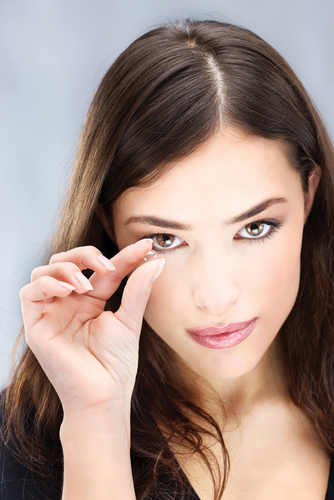Should we change our contact lens solution?
mis à jour le 11 June 2014 à 21:01Ineffective, dangerous... In just a few months, 60 million consumers pinpointed the contact lens solution and denounced its adverse effects. Should we worry? We asked Dr. Evelyne Le Blond, ophthalmologist and president of the French ophthalmologist’s society, specialising in contact lenses.
MF: What did the findings of the 60 million consumers show?
BL: Their goals were to investigate the efficiency and safety of the various contact lenses solutions available on the market. The magazine concluded that only one of the 8 products was effective and safe for use.
MF: Do you share this opinion?
BL: No. Products sold in most countries must always meet standards of efficacy and safety. Nevertheless, the chemicals to remove bacteria on lenses are put directly in contact with the eye. So there is bound to be cases where some contact lens wearers are affected. And as for those questioning the effectiveness of their solutions, most of the time, these are patients who do not comply strictly with the instructions.
MF: What are the instructions?
BL: Do not use lenses beyond the recommended time (daily, monthly...), wash hands before putting them on or taking them off and most importantly, to rinse well. 90% of the bacteria accumulated during the day is removed with the cleaning solution on the first round of cleaning. Simply place the lens on the palm of the hand and squirt on a little liquid and massage for at least 10 seconds with a finger. Allow it then to soak overnight in the solution, to remove any remaining germs.
MF: What are the safety concerns?
BL: 3-5% of wearers are sensitive to cleaning products. They may feel tingling, itching, watery eyes or have decreased vision. Fortunately, these symptoms disappear quickly without repetition.
MF: Are there are solutions to avoid these reactions?
BL: Absolutely. If a product which causes no reaction is used, it is best not to replace it, even with one from the same range (eg. multifunctional solutions). Not all products have the same chemical formula and therefore will probably not cause the same reactions. If you are having trouble with your current product, it is best to go and consult an optometrist. The optometrist can refer you to an oxidizer. They are a bit more restrictive in terms of use (contact lenses have to be soaked for at least 6 hours to clean and neutralize the toxic effects of the liquid), but they cause fewer allergic reactions. Indeed, thanks to the chemical reaction, the liquid gradually turns into saline that has nothing dangerous for the eyes. It may be safer and more efficient, but it is still advised to ask your doctor before swapping.
Interview by Maureen Diament




